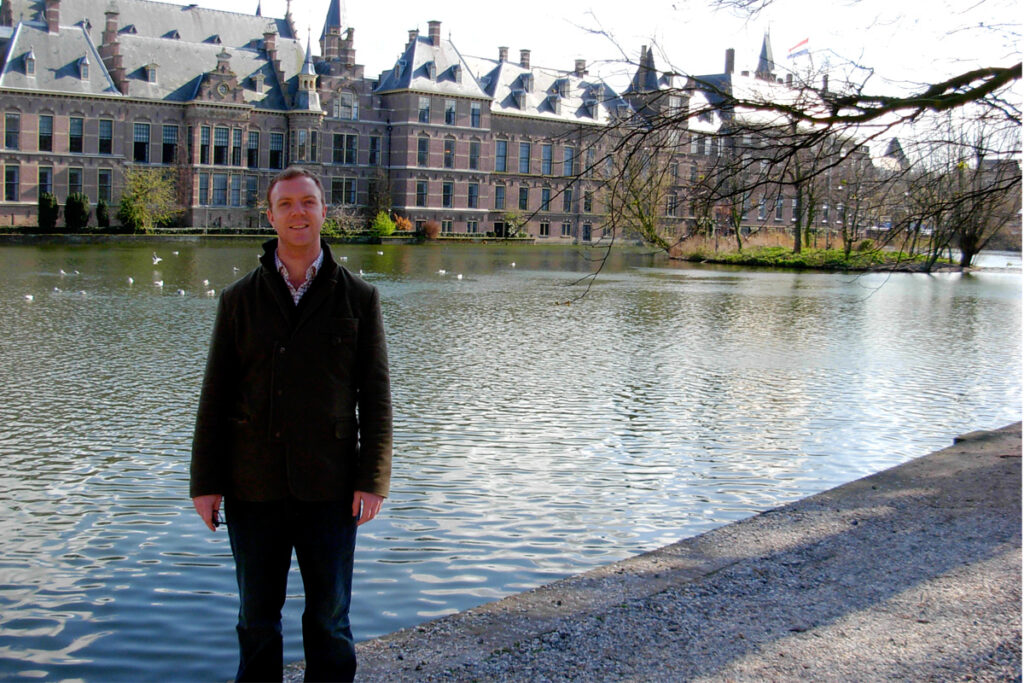Each floor of the 21-story building is divided into north, south, east, and west. I know exactly where I am based on the color of the trim of the walls: blue in the north, red in the south, yellow in the east, and pink in the west.
There is always a lot of noise: phones ringing, machines beeping, people calling out, conversations crossing. I slide through it all unnoticed, quiet and determined, preparing myself in the midst of life to look at death.
I am convinced that you can look death in the eyes, and it looks back at you. I have come to believe that people know that they are dying—deep down in the core of their being. They may never say that they know, or how they know, but you can see it in their eyes.
I look at death like it’s my job. Well, in fact, it is my job. I’m a palliative care chaplain at Bellevue Hospital in Manhattan and the people I care for are all dying. These incredible human beings have bodies and minds and souls that have been through so much—rare disorders, chronic illnesses, acute illnesses, traumas, family problems, addictions, recoveries, homelessness, mental illness, metastatic cancers—and they all battle in some way for their lives.
I’ve sat with terminally ill people of every age, race, religion, socio-economic status, educational background, immigration status, employment status, nationality, gender, and sexual orientation. And it is my task—my honor, rather—to help them create meaning and purpose in the midst of pain and suffering as their lives come to an end.
It is an honor because, once strangers, we soon become sacred friends. They impart to me wisdom for the ages, stories of the heart, mistakes made, lessons learned, battles fought, victories won. And I can say without hesitation, after countless conversations, that what matters most to people at the end of life is relationships.
No one has ever shared with me whether or not they were successful in life: where they went to school, what career they excelled or even failed at, how much money they made, or how much access they had to life in general because of how they looked, who they knew, or what family they happened to be born into.
But all them have, in one form or another, shared with me the stories of their messy, complicated, joyful, exciting, stressful, complex, exhilarating, enriching relationships that have somehow made their lives—now at the end—worth fighting for.
Relationships with wives and husbands, sisters and brothers, partners and lovers, children and grandchildren, aunts and uncles, nieces and nephews, cousins, friends, neighbors, bosses, co-workers, strangers, and of course their beloved pets.
I hear about people they’ve gained and people they’ve lost, people who have left an impression on them, people who have changed their lives, and even people who have abused them. People. I hear about people.
It is humbling to have so much life shared with me—especially since I often only see my patients a few times before they die, or are discharged to hospice, or go home to die. And all that life that is shared with me keeps me grounded, keeps me simple.
These incredible human beings who have been through so much help me see and keep in front of me that life is not about what we’ve always been told it’s about, but that it is much more basic. As basic as our daily relationships.
The thing I have in common with my patients is that most of us are not so great at relationships. We’ve all been hurt and hurt others. We’ve all been betrayed and betrayed others. We’ve all made mistakes that affected others and have been affected by others’ mistakes.
But we’ve also all been loved and loved others. We’ve made someone else’s day and had someone make our day. We’ve all felt the pull to stay connected to other human beings.
And so when I look at death now, I don’t just see the empty stare of someone who knows they are dying. I see the fire of someone who knows they have lived, and lived because of the relationships that make life so incredibly successful.

